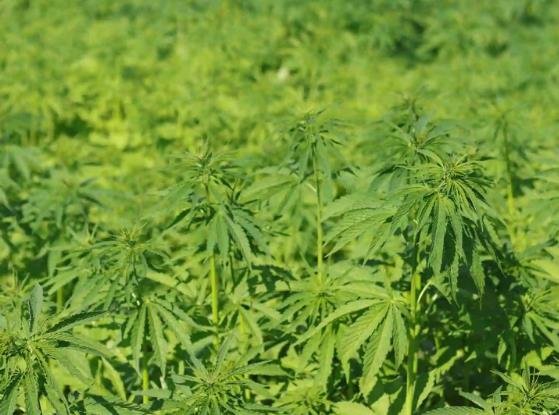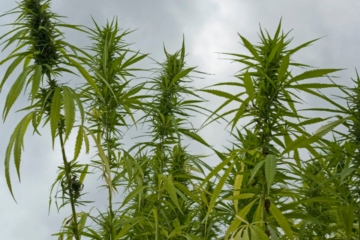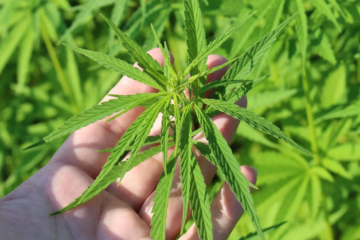In a decisive vote, the Texas Senate has passed a bill that would ban consumable products derived from hemp containing any amount of THC, a move that could bring an end to the state’s growing hemp industry. This legislative action comes amid growing public opposition to such a ban, with a new poll showing significant voter support for keeping hemp-derived products legal under stricter regulations.
A Controversial Bill with Strong Backing
The bill, sponsored by Senator Charles Perry (R), passed the Senate on a 24-7 vote and is backed by Lt. Gov. Dan Patrick (R), who has been vocal about his criticism of the hemp market. Lt. Gov. Patrick visited stores selling cannabinoid products and held a press conference Wednesday, calling for the removal of products containing THC from the shelves. This bill would restrict legal hemp sales to only non-intoxicating CBD and CBG products, a sharp contrast to the current state of affairs where hemp containing up to 0.3% THC is federally permitted under the 2018 Farm Bill.
Supporters of the bill argue that it is necessary to close what they see as a loophole in the state’s current hemp law, which they believe has allowed businesses to flood the market with intoxicating THC products. These products, often marketed as hemp-based but containing higher levels of THC, have been growing in popularity and raising concerns among lawmakers, who now believe that regulation is not enough.
Perry, in his floor speech, said, “It would be in the billions. It’s unenforceable because every day a new product hits the shelf that was at the whim of a chemist.” His concerns seem to echo broader fears about the public health implications of widespread access to THC-infused products. Perry further compared these products to synthetic drugs like K2 and Spice, suggesting that they could cause lasting psychological damage.

Public Opinion vs. Legislative Action
Despite the Senate’s approval of the bill, a recent poll conducted among Texas voters shows overwhelming support for keeping hemp-derived products legal but with stronger regulations. The poll reveals that voters are in favor of maintaining a legal market for hemp products while ensuring that businesses adhere to strict rules, such as limiting THC content and ensuring proper labeling.
Voters appear to be caught in a dilemma between wanting the freedom to access hemp-based goods, such as CBD oils, edibles, and other consumables, while also expressing concerns about the safety of unregulated products. Many respondents to the poll suggested that they would prefer a middle ground, with stricter enforcement rather than an outright ban.
This disconnect between voters’ preferences and the actions of state lawmakers could signal a growing rift in Texas politics over cannabis regulation. While cannabis advocates, businesses, and even some medical professionals argue for the potential benefits of hemp-derived products—ranging from pain relief to mental health support—lawmakers remain steadfast in their stance that the risks of THC outweigh any potential benefits.
The Impact on Texas’ Hemp Industry
If the bill becomes law, it will have a significant impact on the state’s hemp industry, which has experienced rapid growth in recent years. The hemp market in Texas has become a multimillion-dollar industry, with thousands of small businesses involved in the cultivation, manufacturing, and sale of hemp products.
A ban on THC-infused products would likely put many of these businesses out of operation, especially those selling items like THC gummies, oils, and tinctures, which have become popular among Texans seeking legal alternatives to traditional marijuana.
The ripple effect could also impact farmers, many of whom have transitioned to hemp cultivation after the 2018 Farm Bill legalized the crop on a federal level. Hemp has been viewed by many as a viable alternative to other cash crops like cotton and corn, and its growing market has provided new opportunities for Texas farmers.
Supporters of the hemp market argue that this bill could have devastating consequences not only for businesses but for the state’s agricultural sector as a whole. The Texas Hemp Growers Association has already voiced its opposition to the bill, claiming that it will cost jobs and stifle a promising industry that has already created thousands of new jobs in the state.
Hemp Ban Backed by Mental Health Concerns
A significant part of the debate around the hemp ban is centered on concerns about mental health. Lt. Gov. Patrick and other supporters of the bill have repeatedly expressed worries about the potential for THC-infused products to cause harm, citing reports of individuals experiencing paranoia, psychosis, and other mental health issues.
While these concerns have prompted strong reactions from both sides of the debate, advocates for the hemp industry point to the growing body of research suggesting that, when used responsibly, hemp-derived products like CBD can have therapeutic effects. This has led to a divide between public health officials who want tighter regulations and those who believe that personal freedom should allow individuals to choose products for their health and well-being.
Advocates also argue that a ban on THC-infused products could drive Texans to seek black-market alternatives, potentially increasing the risk of encountering dangerous, unregulated substances. With the demand for hemp-derived products still high, critics fear that shutting down legal businesses will only exacerbate the problem.
The Future of Hemp Legislation in Texas
The passage of this bill by the Texas Senate is just the first step in what could be a long and contentious fight. While the House of Representatives has yet to vote on the measure, the legislation is expected to face intense scrutiny from both the public and interest groups.
For now, the future of hemp-derived THC products in Texas remains uncertain. As the debate continues to unfold, lawmakers will have to weigh the potential risks and benefits of such a ban and decide whether it’s worth sidelining a growing industry that has become a key part of Texas’ economic landscape.



